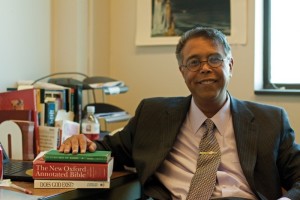Perhaps the most difficult question my atheist friends like to ask to challenge my belief in God involves the problem of evil, pain and suffering, and our mortality. Simply stated, the problem is this: how can a benevolent God allow evil to exist and torment us? Why does God allow us to suffer illness, pain, and eventually, death? When I debated Ed Buckner, former president of American Atheists, I felt like that was the most difficult challenge he posed in his argument advocating atheism. It's a very good question, I must admit. I think part of the answer involves free will. We are given the ability to choose or reject God by the fact the evidence for His existence is not direct, but mostly circumstantial in nature. However, there's a little bit more to the answer than simply "free will", in my opinion. Derek Denhard was my friend. We graduated from the same high school, Savannah Christian, in 1978. We weren't exactly what you'd describe as close friends, but every time I ran into Derek after graduation, we always smiled, shook hands, and promised we'd get together soon for dinner. I can't recall ever exchanging harsh words with the guy. Nobody disliked Derek. Sadly, we both took "soon" for granted, I'm afraid. The reason I am writing about Derek in past tense is because recently and quite unexpectedly, he died from a heart attack, at only 54 years old. Younger than me. Derek seemed far too young. He was far too healthy and happy with his life, blessed with a beautiful family and great joy for life. This is typically when my own morbid … [Read more...]
The Spiritual Brain and the God helmet
In a very good book written by Mario Beauregard and Denyse O'Leary, titled The Spiritual Brain, (I would give it five stars, if I rated books with stars at my website) there is a chapter called "The Strange Case of the God Helmet" which describes a physical device that "scientists" place on their head so that low-powered magnets can stimulate the temporal lobes of the test subject. Seriously. The tin-foil hat crowd now has legitimate competition. Only a person who doesn't believe God exists and has apparently become desperate to prove it would deliberately try to artificially simulate the effect that belief in God has on people of faith. About neuroscientist Michael Persinger (co-inventor of the God helmet) Beauregard wrote: Echoing Dawkins, Persinger has called religion "an artifact of the brain" and a "cognitive virus." (page 81) Speaking of Richard Dawkins, he had to try the helmet himself, of course, but he didn't experience any of the hallucinations the helmet can allegedly sometimes cause. Persinger attributed the failure of Dawkins to "experience God" using the helmet was due to his "well below average" score in temporal lobe sensitivity to magnetic fields, whatever that means. Of course, Persinger had to publish the results of his 2002 "study" in the Journal of Nervous and Mental Disorders. Beauregard (and O'Leary) wrote: Persinger concluded two things: that the experience of a sensed presence can be manipulated by experiment, and that such an experience "may be the fundamental source for phenomena attributed to visitations by gods, spirits, and … [Read more...]
Hector Avalos: world’s biggest hypocrite?
I used to think that Al Gore was the biggest hypocrite in the world as he flew around in his private jet, and the inconvenient truth that he bought an $8.875 million dollar oceanfront property, after scaring the sellers into believing the oceans are about to rise and drown everyone on the coast. For Al to really believe his own nonsense, he'd have to understand geography about as well as Congressman Hank Johnson, who once thought the addition of eight thousand Marines to the island of Guam might cause the entire island to capsize. Surely Al didn't think the oceans would rise twenty feet on the east coast while sea level remained the same on the west coast. He couldn't possibly be that dumb, could he? Remember, for eight years Gore was only a heartbeat (or impeachment conviction) away from becoming the 43rd President of the United States. Personally, I think famous hoaxer P. T. Barnum would have been proud to call Al his son, I think, because it would be absolutely stupid to pay millions of dollars for oceanfront property if you really think it will be underwater in a few years. Nobody that stupid has millions of dollars for very long. But I think Al has nothing on Hector Avalos, an atheist college professor with some really big cohones. Avalos is (allegedly) a professor of religious studies at Iowa State University. The need for qualifying his professional title should become quite obvious, by the very next sentence. Almost eight years ago Hector Avalos wrote a book called The End of Religious Studies. Yet Avalos continues to draw a hefty paycheck … [Read more...]




